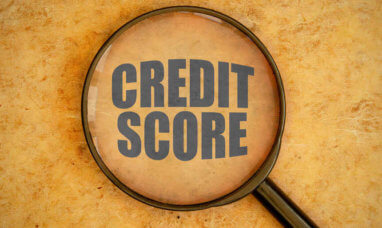Negative reports on your credit can be devastating when trying to open new credit card accounts, get loans, find good deals on insurance, and other important situations. It can even be difficult to find ways to rebuild your credit because of them.
While major circumstances such as Bankruptcy can remain on a credit report for up to ten years, most other negative debts should fall off in approximately seven years.
Typically, they will be removed automatically, no longer causing a detrimental effect on your score. However, what happens if the time expires, but the delinquency is still there?
Don’t worry — there are ways you can get the situation resolved so you can enjoy the benefits of having better credit.
Get Your Credit Reports
If you suspect old debts are still hanging around on your report when they shouldn’t be or if you want to learn the dates when they should fall off, you will need a copy of your credit report and credit scores.
A credit report is a listing of your debt history and the credit score is a numerical representation of the results of your report — good or bad.
You can get a free copy of these once a year from each of the three major credit bureaus: Equifax, TransUnion, and Experian. Therefore, if you time it properly by staggering when you use each one, you can get a free credit report every three months.
Once you have those reports in hand, go through and look for the bad debts, especially the oldest ones. It’s possible that the credit reporting companies have the wrong dates.
What’s important to find are the dates that those debts became delinquent, not when accounts were closed or debts were handed over, but the actual date when the payment was due and you were never able to catch up.
If you find a discrepancy, you have an issue which you can dispute to try to eliminate that debt from your report.
Note: Sometimes different credit bureaus show different debts and results, so if you are concerned that might be the case, you may want to go ahead and get all three at the same time so you can compare and contrast the debts and make sure you account for everything.
Double-Check Sold-Off Debt
The most confusing situation for everyone, including credit reporting companies, is when your debt has been sold to other agencies and passed around multiple times. In this case, sometimes the date shown is not the delinquency date, but rather a date when a new creditor acquired that debt.
Sometimes a creditor attempts to put a debt past the 7 year drop off period on your report, so make sure to validate the actual date when the debt was incurred because they are not allowed to do that.
Note: Bad debt is estimated to be 1.5% of credit sales.
How To Dispute Old Debts
You’ve found a problem and have verified that you have a debt which no longer belongs on your report. What do you do?
The process is not too complicated, fortunately.
You will need to write a letter to the credit bureau. In that letter, give them all the information about the debt(s) in question and explain that they are outdated. Provide whatever evidence you have that verifies that is the case. If the date is on the report itself, it should be a simple fix. If not, you will need to have whatever materials show that the date they have is incorrect if you hope to make any changes.
Mailing Your Dispute
You can send that letter through certified mail to verify the date it was sent and the signature of whomever received it because the agency has thirty days to respond and if they do not, they are in violation of the Fair Debt Collection Practices Act.
That proof will let you decide whether you need to file a lawsuit or invoke the assistance of the Consumer Financial Protection Bureau to resolve your situation.
An easier method is to submit the dispute request on the credit bureau’s website, which will provide a date and time stamp as well and save you on dealing with snail mail.
Dispute With The Reporting Creditor
Next, you should repeat the procedure with the creditor that reported the information improperly, if that is the case. Often, working directly with the creditor can result in a faster resolution than waiting for the credit bureau to handle the situation.
Once more, send with a method that verifies the date and can get a signature if possible to cover your bases as the creditor is under the same 30-day obligation as the bureau.
Note: Be careful how you approach your creditors, taking certain actions, such as paying on a debt or agreeing to pay can restart the statute of limitations on your debt, can make old debt reappear on credit reports or restart the clock on that debt!
Incidentally, if creditors are contacting you over debt, you can send a cease and desist letter to the original creditor to get them to stop. They can still try to collect the debt, but they can’t harass you by phone.
Be The Squeaky Wheel
If you feel like your situation is being ignored or not given the attention it deserves, remember the old adage that the squeaky wheel gets the grease.
You may need to do a little research on your credit agencies to find the person who can take appropriate action. This may mean bypassing customer service and seeking out a person in charge, such as the president of the company, and mailing a certified letter directly to their home office.
Too often disputes get caught up in the endless wheel of customer service and is passed uselessly from person to person, but sometimes getting it directly into the right hands can get something done.
Just remember that politeness also has its place in the process, even if you’re frustrated
Consult With An Attorney
You don’t have to want to file a lawsuit to get advice from an attorney. A lawyer will know the ins and outs of the laws and can tell you effective ways to handle your situation to get the best case scenario.
Final Thoughts
The fair credit reporting act authorization form 9802 requires an employer to notify you and have you sign a document giving your permission to have a background check performed on you.
If they have not done so, they are not allowed to gather that kind of information on you.
End Note: If you want to see some eye-opening figures related to various types of debt, check out usdebtclock.org.
Featured Image: Twenty20








